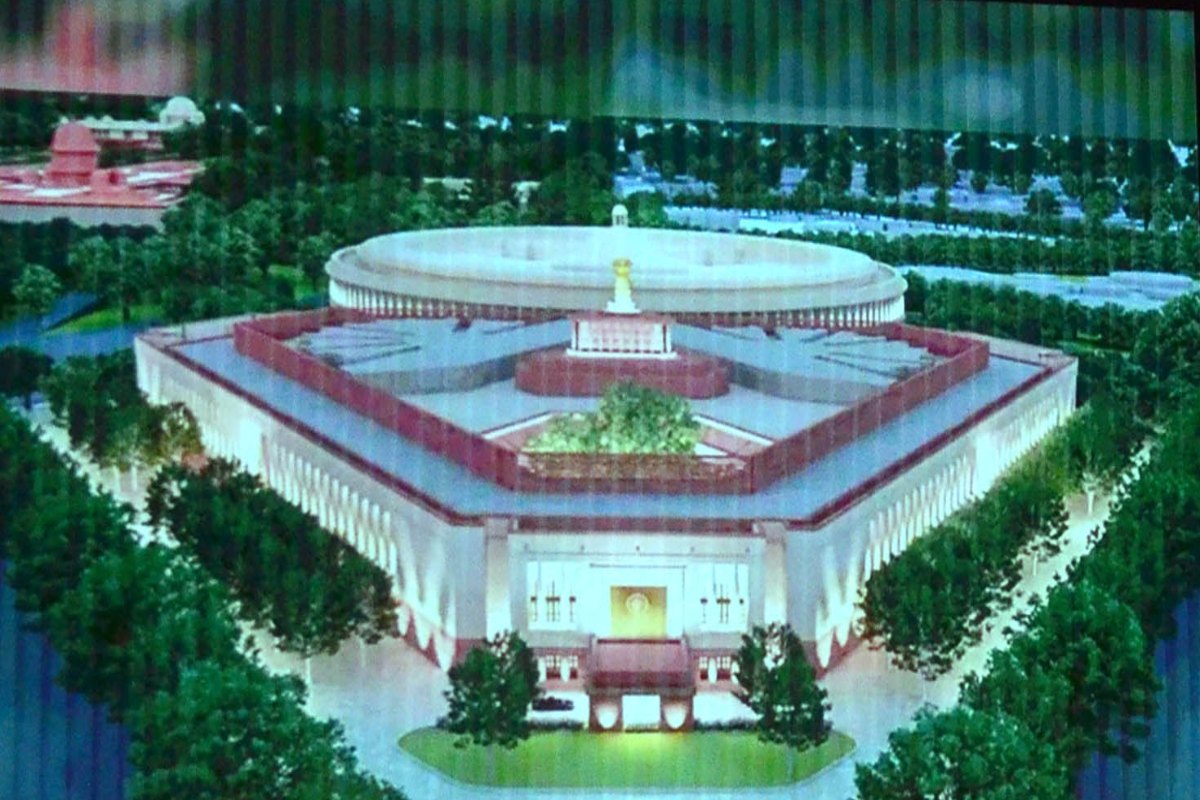The year 2026 is likely to become a critical tipping point in India’s democracy. This is because our Constitution provides for a fresh delimitation exercise on the basis of an all-India Census undertaken after that date.
Anticipating the likely expansion of the number of Members of Parliament, the Union government has already constructed a big Parliament building in New Delhi. To increase the number of people’s representatives while our population has touched 140 crores today is indeed desirable for widening and deepening democracy. However, a fresh exercise in delimitation involves reconstitution of electoral constituencies.
This reconstitution is likely to open a raging controversy that cannot easily be resolved. These controversies are likely to emanate from the way the ‘We’ in the Preamble of the Constitution is constructed. An obvious and self-evident referent of this ‘We’ are citizens who as atomised individuals are empowered to vote. But as Chief Justice D Y Chandrachud asserted in an address on Ambedkar Jayanti delivered two years ago, our Constitution prioritises the collective rights of ‘persons’ who are members of deprived castes and minority communities. So, it can be legitimately argued that delimitation should provide for the representation of these ‘persons’.
Those sympathetic to the cause of the LGBTQ+ movement, would also like to include lesbians, homosexuals and trans-genders in this category of ‘persons’, needing proper representation. It cannot be convincingly argued that delimitation of constituencies is at best a geographical exercise that has nothing to do with the rights of ‘persons’ guaranteed by the Constitution.
Delimitation does more than merely fix geographical boundaries of constituencies within which all resident adults have the franchise to elect the government of their choice. As the famous Sachar Committee had articulated more than a decade ago, Muslims in some parts of India feel cheated by existing constituencies that divide their votes and convert their collective voice into mere minoritized aspirations.
Their complaint is that if Muslim-dominated areas of some adjoining constituencies are merged, their voice will be more clearly heard and their needs fulfilled. Several Muslims interlocutors who appeared before the Sachar Committee attributed the ghettoization of Muslims to fragmentation of the Muslim vote.
Dalit activists have a similar complaint; they argue that as the reserved constituencies for the Scheduled Castes invariably have many castes who are not Dalits, the Dalit agenda for dignity and equality get short shrift. As far as the rights of the LGBTQ+ are concerned, the country is only now entertaining the legitimacy of their claims. While same-sex relations and living are legitimised, their claims to the right to inherit property and marital status are likely to get entangled with laws on marriage and family that are governed by religious norms. While the deprived castes and communities raise their demands for just delimitation, the castes that are now dominant will also be concerned.
Recall the days of the late Sharad Yadav making caustic remarks on ‘par kati’ women (literally, clipped feathers referring to urban, upper-class women who cut their hair) and the late Mulayam Singh Yadav saying that women’s representation in Parliament would reduce him to banging the charpoy at his home instead of banging the tables as he does in the Parliament. Will this patriarchy accommodate women’s representation even through nomination, leave alone the broader gender rights concerns?
Moreover, castes and communities that now dominate electoral bodies would be anxious to retain their hold and might insist on reservation of seats in elected bodies to the OBCs as well. Another problem that the delimitation exercise would confront is likely regional disparity owing to demographic changes.
There is the widespread fear among the southern States that the balance of power may shift north because some of the states in north India have been indifferent to development goals and have not reduced their fertility rate to match with the achievements of the southern States. There is a legitimate fear that representation in the Parliament and hence the centre of gravity of India’s politics will turn more in favour of the north.
A fresh delimitation exercise in these circumstances is likely to raise a whole host of dormant collective as well as individual cultural grievances that cannot easily be resolved. Moreover, since our political discourse is saturated with caste, community and regional identities, it is not unlikely that the ghosts of separate electorates of the colonial era may once again come to haunt us and shake up the political scene.
(The writer is former Associate Professor, Lady Shriram College for Women, University of Delhi.)












